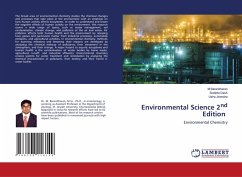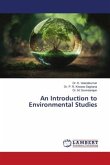The broad area of environmental chemistry studies the chemical changes and processes that take place in the environment with an emphasis on how human activity affects ecosystems. In order to understand and lessen the negative effects of human activity on the environment, this research covers a wide range of topics, such as waste management, soil contamination, climate change, and pollution of the air and water. Air pollution affects both human health and the environment by releasing toxic gasses and particulate matter from industrial processes, automobile emissions, and agricultural activities. In environmental chemistry, methods for lowering emissions and lessening their impacts are developed by analyzing the chemical makeup of pollutants, their movement in the atmosphere, and their change. A major hazard to aquatic ecosystems and human health is the contamination of water bodies by home waste, agricultural runoff, and industrial effluents. Environmental chemistry creates systems for water treatment and remediation by analyzing the chemical characteristics of pollutants, their destiny, and their transit in water bodies.
Bitte wählen Sie Ihr Anliegen aus.
Rechnungen
Retourenschein anfordern
Bestellstatus
Storno








